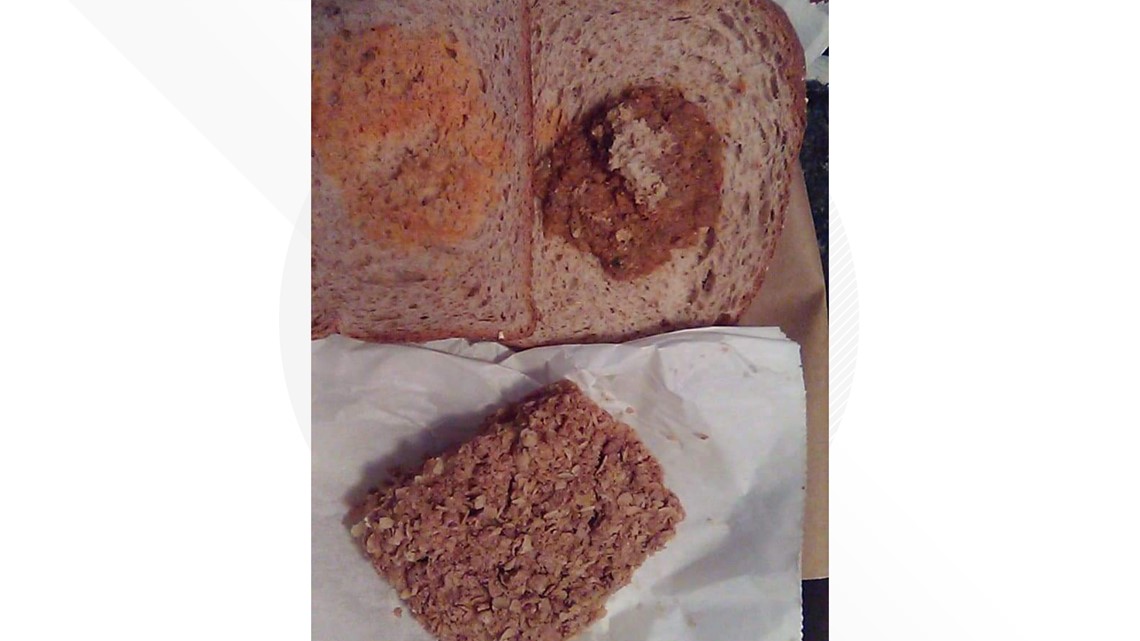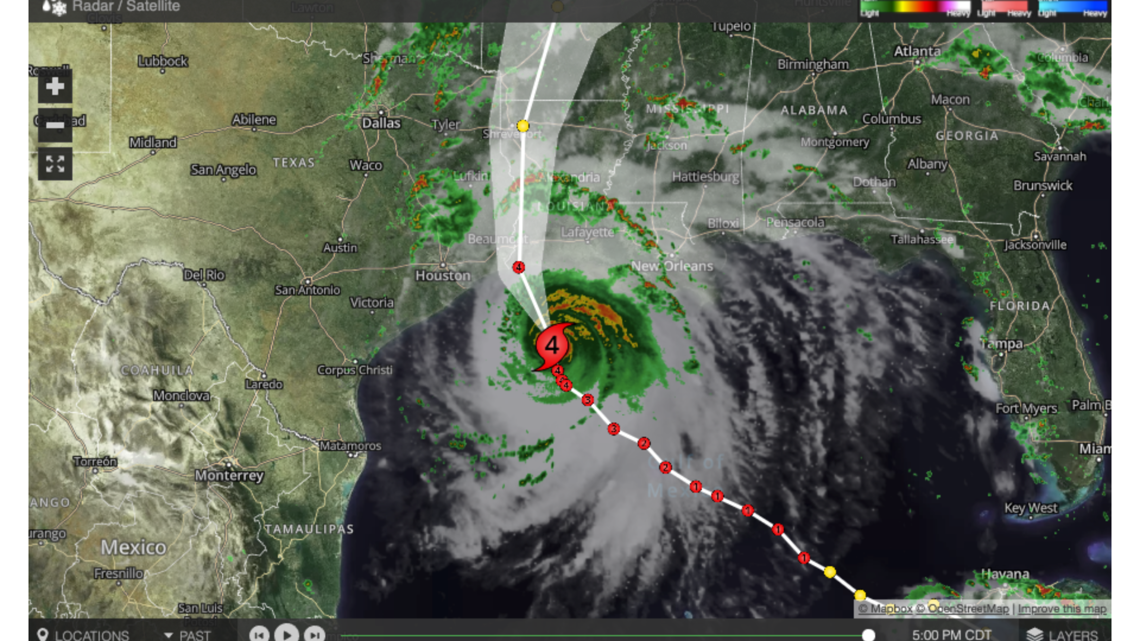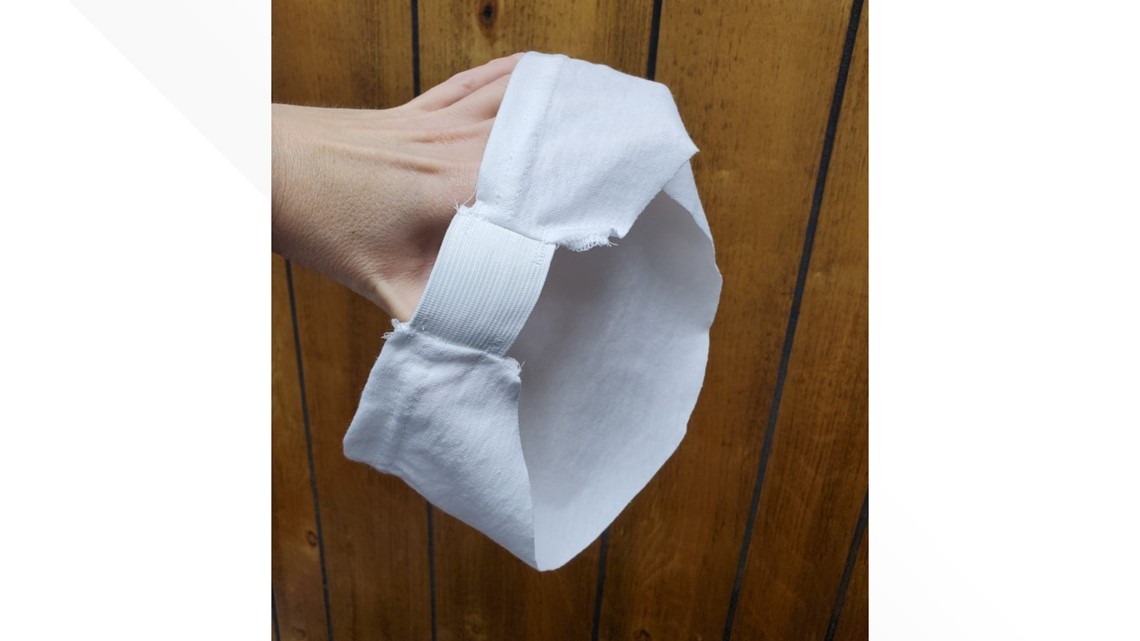In Texas prisons, more than 26,000 prisoners have caught COVID-19 since the first confirmed case in March.
And at least 168 prisoners have died after catching the virus.
There have also been 7,340 coronavirus cases among prison staff and at least 26 employee deaths. The surviving relatives of those prison employees say they have been unable to get first-responder benefits.
By the fall, the Texas prison system led the nation in COVID-19 prisoner deaths, according to a study from the University of Texas at Austin.
Prisons are prime incubators for the disease, as social distancing and basic contagion protections are largely impossible behind bars.
An investigation by WFAA and The Marshall Project showed that the spread of COVID-19 behind bars was also due to the Texas Department of Criminal Justice's lackluster response, potentially exacerbating outbreaks and putting surrounding communities at risk.
Here's how the novel coronavirus has spread in Texas prisons:
Jan. 21 - The first case of COVID-19 is confirmed in the U.S.
Jan. 30 - The World Health Organization declares a public health emergency. The first person-to-person transmission of the virus is confirmed in the U.S.
Feb. 26 - The Correctional Managed Health Care Committee, which oversees healthcare in Texas prisons, has its first meeting to discuss planning and response to COVID-19.
March 11 - The Texas Department of Criminal Justice’s chief health services provider calls a meeting to discuss revamping the agency’s pandemic flu plan to address COVID-19. It's the same day the WHO declares the coronavirus a pandemic.
March 12 - TDCJ makes a video showing staff how to wear PPE. The agency has since fought reporters’ requests to release that video or see what instructions it provides.
March 13 - Gov. Greg Abbott declares a state of disaster, and Texas prisons end all visitation.
March 16 - TDCJ activates its incident command center at headquarters in Huntsville and begins holding daily conference calls to discuss the situation. And, the Texas Court of Criminal Appeals stops the execution of John Hummel due to the pandemic. It is the first of several executions called off due to COVID-19.
March 20 - The Correctional Managed Health Care Committee issues its first COVID-19 policy, greenlit by three joint medical directors but without input from the agency’s security staff. The same day, the governor approves TDCJ’s request to temporarily suspend the fees prisoners are usually charged for medical treatment, allowing better access to medical care during the pandemic.
March 23 - A contract prison employee working at the Jester 1 Unit in Richmond becomes the first staff member to test positive for COVID-19. The Centers for Disease Control and Prevention releases interim guidance on managing COVID-19 in jails and detention centers, outlining when facilities need soap, sanitizer, PPE, and social distancing.


March 24 - Prison factories begin making masks for staff and inmates, distributing them to elderly inmates to start. The agency also begins minimizing prisoner transfers between units. The same day, TDCJ announces the first prisoner - a 37-year-old at Lychner State Jail - has tested positive for the virus.
March 30 - Medically vulnerable inmates at the Pack Unit, a geriatric prison in East Texas, sue TDCJ to demand better access to soap, hand sanitizer and social distancing.
April 5 - After several weeks of banning them, the agency reverses course and begins requiring masks for staff. The first 50,000 prisoner-made cotton masks are distributed.


April 6 - Kevin Wilcher, a 49-year-old officer at the Estelle Unit in Huntsville, becomes the first staff member to die from the virus.
April 7 - Bartolo Infante, a 72-year-old at the Telford Unit, becomes the first prisoner to die of COVID-19 after spending four days in an outside hospital battling viral pneumonia. The same day, four prisons — Murray, Jordan, Beto and Telford — go on lockdown due to viral outbreaks at the units.
April 10 - The number of confirmed COVID-19 cases among prisoners crosses into triple-digits with 132 inmates testing positive. Eighteen prisons are on lockdown. During lockdowns, the agency says only staff assigned to each unit will work at those units.
April 11 - The geriatric Pack Unit in Navasota sees its first COVID-19-related fatality when Leonard Clerkly dies. His cause of death is not confirmed for two more days. Two days later, the prison system suspends intakes from county jails.
April 16 - Federal District Judge Keith Ellison issues a preliminary injunction in the Pack prisoners’ lawsuit, ordering the prison system to provide hand sanitizer and face masks for inmates. TDCJ appeals the order the next day.
April 18 - The prison system changes how it tracks positive cases, now noting only where the prisoners are currently located and making it more difficult to track outbreaks. So far, 18 have recovered and 376 have tested positive as well as 183 staff.
April 19 - Prisoner Russell Hill dies of COVID-19, though the prison system does not publicly acknowledge his death for five more months.


April 22 - The Fifth Circuit stays Judge Ellison’s order, saying that TDCJ does not have to comply with it while the court considers the agency’s appeal.
April 29 - The number of infected prisoners crosses the 1,000 mark, with 1,050 positives among the inmate population and 381 among the staff. TDCJ notes 12 prisoner and 5 staff deaths in connection with the virus. Thirty-seven units are on lockdown, sparking complaints from prisoners who cannot call their families and are subsisting on shoddy bagged meals.


May 12 - The prison system deploys “strike teams” and begins mass testing the inmate population, including prisoners who are asymptomatic.
May 15 - Prison officials promise to improve the food served during lock-term lockdowns, ordering fresh vegetables and tray lids to deliver hot meals.
May 17 - Prisoners and staff continue reporting deteriorating conditions at several units, including the Smith Unit in Lamesa where staff say a sewer line problem causes toilets to overflow with feces after a water outage.
May 29 - Strike teams have tested more than 51,000 prisoners and nearly 14,000 staff members using Curative oral swabs. So far, 5,469 prisoners and 879 staff have tested positive, and 36 prisoners and seven employees have died from the virus.
June 5 - The Fifth Circuit Court of Appeals vacates the court’s preliminary injunction because TDCJ “substantially complied with the measures ordered by the district court” and they remanded the case to the district court.
June 10 - By now, more than 1,000 prison staff and 7,200 inmates have confirmed positives, and 59% of the state's 106 units are on lockdown. Staff report they are routinely being forced to work at other units, even during lockdowns. Some say they have been written up for refusing.
June 15 - In an effort to stop delaying releases, officials announced that they will resume the transfer of prisoners who need to be moved to other units to complete programs needed to make parole.
June 30 - After a monthslong pause on intakes, the prison population drops under 130,000 for the first time in decades, closing out the month with 126,590 behind bars. But the agency resumes picking up new prisoners from county jails in July, starting with just 250 per week.
July 2 - Abbott issues a statewide executive order requiring facemasks in counties with 20 or more positive cases.
July 8 - Texas carries out the first execution since the start of the pandemic, putting to death 45-year-old Billy Wardlow.
July 13 - By this point, the agency has reported 12,007 cases and 94 deaths among the prisoner population, and 2,160 cases including nine deaths among the prison system’s employees. The trial begins in the case of the Pack Unit prisoners who sued TDCJ to demand social distancing, hand sanitizer, soap and other protections.
July 18 - Prisoners at the understaffed Briscoe Unit riot and take a corrections officer hostage for several hours after breaking out of their cells amid a lengthy lockdown.


Aug. 24 - Despite the attempts at decreased transfers due to the pandemic, TDCJ is forced to evacuate three units in southeast Texas in preparation for incoming Hurricane Laura.
Sept. 29 - The Pack Unit prisoners win their lawsuit, as Judge Keith Ellison issues an expansive ruling in their favor, laying out a long list of requirements TDCJ must comply with to better protect inmates.
Sept. 30 - The prison population dips to barely 120,000 for the first time in at least two decades, and TDCJ closes three units - Garza East, Jester 1, and Bradshaw. Another 3,379 beds in wings at other units across the state are temporarily shut down due to a lack of staff.


Oct. 13 - The Fifth Circuit Court of Appeals overturns Judge Ellison’s order, saying that the number of positive cases decreased without a court order. The Pack Unit prisoners later appeal the decision.
Oct. 29 - The number of active prisoner cases dips down to 251, and agency data lists 22,141 inmates as recovered. More than 218,000 incarcerated people have been tested and 166 are believed to have died in connection with the virus. There are 648 active staff cases, in addition to 21 deaths and 4,786 recoveries.
Oct. 30 - At a Texas Board of Criminal Justice meeting, Executive Director Bryan Collier announces that wardens will oversee surveillance testing at each unit every three weeks beginning Nov. 8.
Nov. 16 - The Supreme Court declines to intervene and enforce the district court's injunction in the Pack Unit lawsuit, which would have required certain basic safety procedures.
Dec. 1 - Texas prison officials confirmed plans to shut down two more prisons following a massive population decrease during the pandemic. The goal is to have the prisons closed by the end of the year.
Dec. 2 - Kenneth Russell died of COVID-19 two weeks after he was hospitalized, prison officials said. He is one of 25 TDCJ employees who have died from coronavirus complications.
More from our investigation:
WFAA has partnered with The Marshall Project, a nonprofit news organization that covers the U.S. criminal justice system, to produce No Way Out: COVID Behind Bars. Keri Blakinger is a staff writer with The Marshall Project based in Houston. Her work has focused on prisons and prosecutors.





